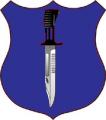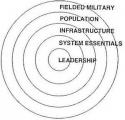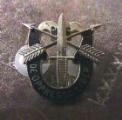Well, my german is little old as is my reading of CvC. And to had some complexity, I did read it in French not in English neither in German.Maybe it's been too many months that I read Clausewitz for the last time, but I'm sure that he wrote in German. So he wasn't using the word "decisive", and that eliminates my problems with the fuzzy definition.
The German words "Entscheidung" (decision) and ("entscheidend" (supposedly "decisive") may have evolved over 170 years, adding another potential problem.
Nevertheless, I can assure you that modern Germans would not use these words for battles like the Marne battle, except ex ante.
So despite I didn't read his book recently I'm quite confident that he wouldn't have called the battle of the Marne a Entscheidungsschlacht (ex post) - except maybe ex ante (then still only being potentially entscheidend).
The same applies to the Tannenberg battle (Eastern Prussia 1914), of course.
But my point was more that you cannot blame anyone for not having a/the decisive battle (as it goes with the comon understanding).
My example of Marne was more that what was a desperate move became a tactical victory with strategic unseen consequences. They used cars to transport troops for nearly the first time. And beat the germans in speed to rally troops. There was no plan no vision, nothing more. Let be franc. Marne is good luck.
The only decisive battle (entering in that definition of THE battle that CHANGES everything) I ever see is Stalingrad. There it is clear that it has been a strategical turn point of the whole affair. But once again, you start with a defeat and the desperate resistance of forces that have the only option of die or win.
CvC is the western guy who pointed very simple things that apply to almost every level in analysing, preparing, conducting war. The only one I see before is Sun Tzu. Makes few centuries difference. Being upset that this man is influencing all western reflection on war is misplaced. The real question to explain what happened to US since Corea is may be else where. And concerning Iraq and Afghanistan, it is certainly not in saying CvC is overused and let kill everybody that you will come with a smart answer to the question: where did it all go wrong?
In addition the whole idea of "humiliating" the ennemy... Well that is exactly why iraky and afghany are much upsed. Not talking about the whole arab world. So may be humiliating people is just good for training during classes. After, when you start to invade and geopardise the life of millions of people, may be it is not a such good idea. Let look at the issue in a smart way or at least a different way.






 Reply With Quote
Reply With Quote

 ) but at Uni I personally fought (verbally of course) for Operation Typhoon being the decisive battle (for the Soviets) in that it prevented the Werhmacht from achieving its primary strategic objective for the winter (i.e., Moscow), bought the Soviet side a respite in which to reinforce and soldify its defences and reorganise the armed forces. In other words, why not Kursk? Why not D-DAY which prevented the Wehrmacht from concentrating on the east and fight the dreaded two front war (three including Italy)?
) but at Uni I personally fought (verbally of course) for Operation Typhoon being the decisive battle (for the Soviets) in that it prevented the Werhmacht from achieving its primary strategic objective for the winter (i.e., Moscow), bought the Soviet side a respite in which to reinforce and soldify its defences and reorganise the armed forces. In other words, why not Kursk? Why not D-DAY which prevented the Wehrmacht from concentrating on the east and fight the dreaded two front war (three including Italy)?
 Been laying off the coffee again? Perception is reality, no matter the ground truth. Where the US falls down is monitoring and responding to the word on the street. Search for "Baghdad Mosquito" for an interesting approach to it. Dedicated HUMIT would be preferred, but who has enough teams in sector to do it
Been laying off the coffee again? Perception is reality, no matter the ground truth. Where the US falls down is monitoring and responding to the word on the street. Search for "Baghdad Mosquito" for an interesting approach to it. Dedicated HUMIT would be preferred, but who has enough teams in sector to do it



 "A Sherman can give you a very nice... edge."- Oddball,
"A Sherman can give you a very nice... edge."- Oddball, 






Bookmarks